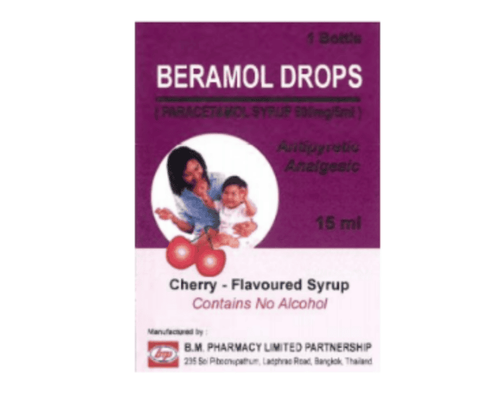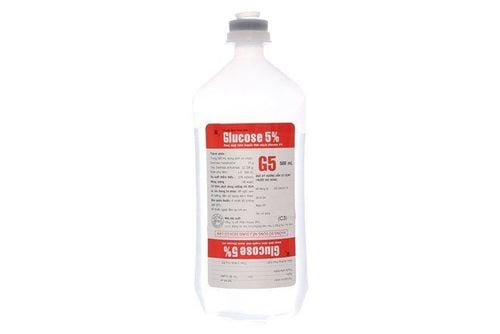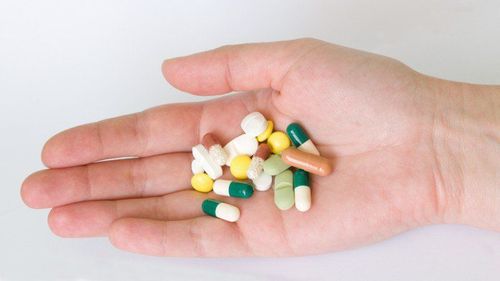This is an automatically translated article.
Volulyte is a commonly used drug in many hypovolemic women affected by bleeding or surgery. To learn about the drug's information, especially the effective dosage and instructions for use, you can refer to the article below.
1. What is Volulyte? What is the effect?
Volulyte 6% 500ml is prepared as a solution for intravenous infusion Contains ingredients such as: Poly(O-2-hydroxyethyl)starch, Sodium acetate trihydrate, Sodium chloride, Potassium chloride, Magnesium chloride hexahydrate 0.15 g .
Thus, the main ingredient of the drug Volulyte is Hydroxyethyl Starch. This is a component that has the effect of replacing plasma, thereby increasing the circulating volume in the body. Specifically, research papers show that Hydroxyethyl starch has the ability to increase circulating volume by up to 100-150% of the volume of fluid replacement in the period from 8 to 10 hours after infusion.
2. Indications and contraindications to the drug Volulyte
2.1. Indications Volulyte is indicated by doctors in the treatment of hypovolemia due to acute blood loss. Specifically, the drug is commonly used for patients with dengue fever, after surgery... when the use of infusion solutions alone does not bring high efficiency.
In addition, Volulyte is also used in isotonic blood thinning therapy to contribute to maximum blood savings during surgery.
2.2. Contraindications Volulyte is not contraindicated in the following cases:
The patient is allergic or hypersensitive to any ingredient of the drug, especially Hydroxyethyl Starch. Patients with renal failure or on other renal replacement therapies. The patient has hyperkalemia, severe hypernatremia. Patients with severe coagulopathy Patients with cerebral hemorrhage, pulmonary edema, hemorrhagic heart failure, organ transplant. Severely ill people are being treated in intensive care units.
3. Dosage and how to take Volulyte
3.1. Dosage Drug dosage and rate of infusion depends on blood loss, the body's ability to respond and the patient's ability and recovery, can refer to the following dose:
For adults: Use Volulyte drug with a maximum dose of 30 ml/kg body weight/day. Patients should not exceed the maximum recommended dose nor should hemodynamic parameters be monitored continuously. In the event that the patient achieves hemodynamically adequate levels, the infusion should be stopped immediately. For children: The safety of using Volulyte in children is still limited, so it should be considered for this audience. 3.2. How to use Volulyte is a drug that is administered intravenously. Therefore, the use of the drug should be carried out by qualified medical personnel.
Usually, during the infusion of 10 - 20 ml of the first solution, medical staff must infuse slowly. In addition, patients should be closely monitored, closely for abnormal manifestations to promptly detect signs of anaphylaxis.
4. Volulyte side effects
During the use of Volulyte, some undesirable effects may be encountered, including:
Common side effects: Increased levels of amylase enzyme in the body, so it is often confused with pancreatitis. When taking Volulyte in high doses, the blood-thinning effect can lead to a decrease in the hematocrit index. Attention should be paid to patients who are hypovolemic because they may experience severe hemodilution. Rare side effects: Disorders of clotting factors or appearance of hypersensitivity reactions such as tachycardia, bronchospasm. Side effects of unknown frequency: Liver and kidney damage. If side effects occur, the patient should be stopped infusion and instituted supportive measures until the symptoms of hypersensitivity disappear completely.
5. Volulyte drug interactions
Currently, the research literature has no reports of interactions occurring between Volulyte and other drugs on the market. However, because the drug contains sodium and potassium, care should be taken when taking Volulyte with drugs that can cause sodium and potassium retention.
6. Notes when using and storing Volulyte
Check the expiry date of Volulyte before infusion, if expired, discard immediately. The product is intended for single use only and should be used immediately after opening. In case of excess drug, it should be discarded, absolutely not kept for use for the next injection. Store the medicine in a cool, dry place, the temperature should not exceed 30 degrees Celsius, avoid storing it in humid places or keep it cold or frozen. Basically, Volulyte is a prescription drug, so patients only use it when prescribed by a doctor under the infusion of medical staff. The use of drugs needs to be in the right dose and duration of treatment to avoid harm to health.
Follow Vinmec International General Hospital website to get more health, nutrition and beauty information to protect the health of yourself and your loved ones in your family.
Please dial HOTLINE for more information or register for an appointment HERE. Download MyVinmec app to make appointments faster and to manage your bookings easily.













